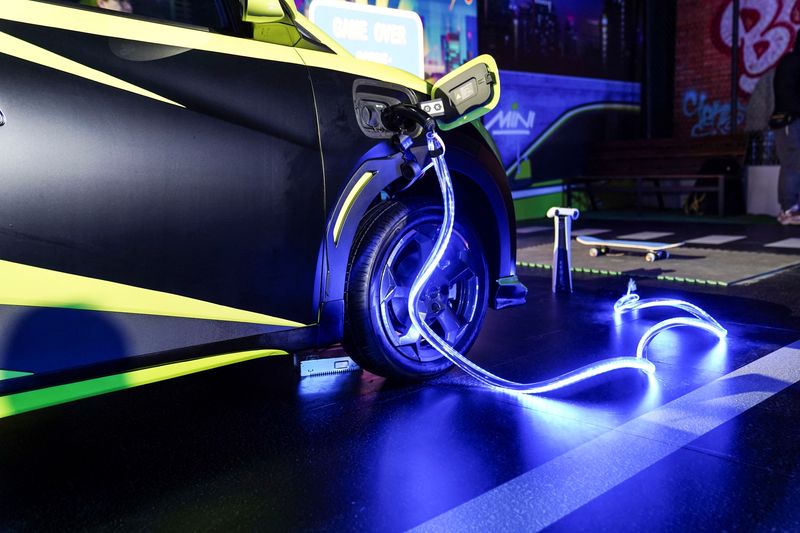Chinese electric vehicle-maker BYD is set to use US chipmaker Nvidia’s next-generation chips to enable increased levels of autonomous driving and other digital functions in its vehicles.
The in-vehicle chips, dubbed Drive Thor, are built for generative artificial intelligence (AI) applications and can power a wide-range of automotives including new energy vehicles, robotaxis and robobuses, Nvidia said in a press release on Monday.
Drive Thor chips “can deliver feature-rich cockpit capabilities, plus safe and secure highly automated and autonomous driving, all on a centralised platform,” Nvidia said.
Also on AF: Many Chinese Carmakers Opening Factories Abroad Despite Rows
“Drive Thor is going into BYD [vehicles] next year,” Nvidia Vice President for Automotive Danny Shapiro said during a conference call.
Apart from the Drive Thor chips, BYD is also planning to use Nvidia technology to streamline its factories and supply chain, as well as to develop virtual showrooms, Shapiro said.
The chipmaker, that has previously attracted Washington’s ire over its shipments of AI chips to China, also said it will expand tie-ups with other Chinese automakers, including Xpeng and GAC Aion’s Hyper.
Chinese automaker Zeekr, a unit of Geely, and Li Auto had previously said they would use Nvidia’s Drive Thor technology.
“There’s a massive number of Chinese automakers,” Shapiro said. “They have a lot of incentives in place to innovate, a lot of regulation that’s favourable” to developing increasing levels of automated driving.
Chinese carmakers are racing to build self-driving vehicles and AI-augmented infotainment technology to compete in global markets. Most of them are turning to Nvidia for advanced technology in an effort to compensate for what they currently lack in global brand recognition.
For BYD, the tie-up with Nvidia comes at a crucial time, given its push to expand in foreign markets including in Europe, Southeast Asia and Mexico.
BYD will be competing with Tesla in these markets, after having beaten the American carmaker as the world’s biggest electric vehicle manufacturer late last year. It will also face tough competition from established Western vehicle brands in their home market.
The biggest challenge facing BYD, however, will be an escalating regulatory scrutiny in the West.
American and European authorities are becoming increasingly wary of the threat to local automakers from cheaply priced Chinese electric vehicles and the national security risks from data-collecting sensors and chips that power them.
View this post on Instagram
- Reuters, with additional inputs from Vishakha Saxena
Also read:
Slower Nvidia Chip Out in Q2 But China Firms ‘Don’t Want It’
EU Says China EVs Funded by Subsidies, Plans Retroactive Tariffs
Biden Orders Probe Into Data Security Risks From Chinese EVs
Raimondo Says Chinese EVs Are a National Security Risk For US, EU
China EV Firms Can Destroy Rivals Without Trade Barriers: Musk
China Vows to Help EV Makers Expand Overseas, Fight Sanctions
Chinese EV ‘Invasion’ Forces Western Rivals to Slash Costs
BYD’s First Vehicle Charter Sets Sail For Europe With 5,000 EVs
France Reworks Subsidy Criteria to Cut-Off Chinese EVs – Nikkei
Lawmakers’ Fears Over Chinese US Self-Drive Car Tests – NBC
























